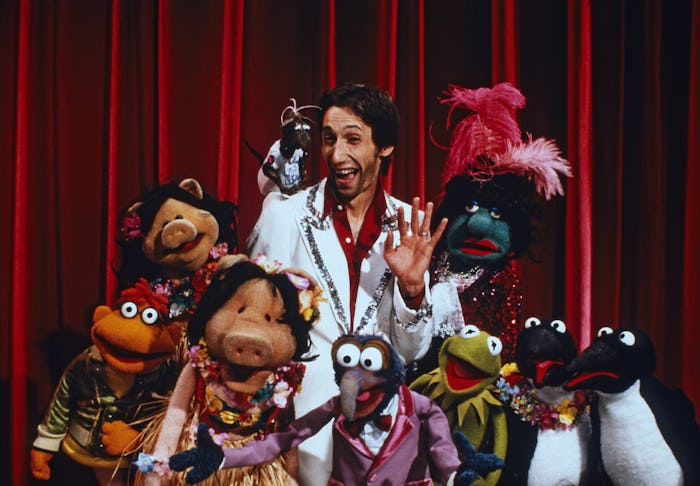Entertainment

Disney+ Has Added A Content Warning For The Muppet Show
The streaming service made the decision to preserve, rather than censor, the original content in order to "learn from it"
Muppets fans can now watch all five seasons of The Muppet Show on Disney+. But viewers will notice something ahead of some of the episodes that didn't air during the series original run: a content warning for "negative depictions and/or mistreatment of people or cultures."
Ahead of the relevant episodes — 18 over the course of more than 100 episodes which aired from 1976 to 1981 — a content warning appears, reading:
"This program includes negative depictions and/or mistreatment of people or cultures. The stereotypes were wrong then and are wrong now. Rather than remove this content, we want to acknowledge it's harmful impact, learn from it and spark conversation to create a more inclusive future together. Disney is committed to creating stories with inspirational and aspirational themes that reflect the rich diversity of the human experience around the globe. To learn more about how stories have impacted society visit: www.Disney.com/StoriesMatter"
Some of the flagged material includes (but is not limited to) episodes hosted by Steve Martin, Peter Sellers, Kenny Rogers, Johnny Cash, and Debbie Harry, according to the Los Angeles Times. Among the issues that warranted a warning are negative depictions of Indigenous Americans, people from the Middle East, and other cultures, and a display of the Confederate flag.
The Muppet Show is not alone in receiving these preambles. Disney classics like Dumbo, Peter Pan, The Aristocats, and Aladdin, among others, also have the warning. Per Disney's "Stories Matter" website, the House of Mouse has partnered with various organizations, including the African American Film Critics Association, the Geena Davis Institute on Gender and Media, RespectAbility, IllumiNative, and others to "assess content and ensure it accurately represents global audiences."
The question of how to approach harmful, racist, and stereotyped content in media in general and children's media in particular is not new. In 1968, United Artists (UA) which owned the syndication rights to Looney Tunes and Merry Melodies properties at the time, decided to pull 11 cartoons, thereafter referred to as "the Censored Eleven." According to Time, the cartoons were deemed "too politically incorrect to air," specifically for its racist depictions of Black people. Subsequent syndication rights holders have followed suit, and the cartoons, while available online and in the Warner Archives, have not been rebroadcast.
Disney has also taken this course of action in the past. In 1969, a character named Sunflower — a stereotyped Black character — was removed from Fantasia's "Pastoral Symphony" sequence and has not appeared since. The 1946 film Song of the South which, according to reporting from IndieWire, courted controversy from before its premiere has long been a subject of debate within the company. In March of 2020, Deadline reported that Disney CEO Bob Iger had confirmed in a shareholders meeting that the film — which has never had a VHS or DVD release in the United States — would not appear on Disney+ as it is “not appropriate in today’s world.”